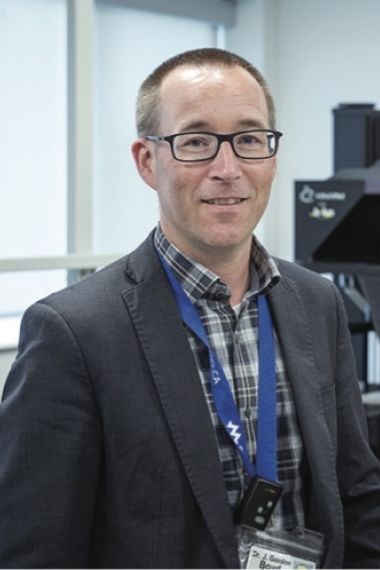
J. Gordon Boyd
- Clinician Scientist, KGHRI
- Associate Professor, Department of Medicine (Neurology and Critical Care), Queen’s
Neuroscience, neurology, critical care, spinal cord injury, brain function
Dr. Boyd began his training at Lakehead University in Thunder Bay where he received his undergraduate degree in Psychology in 1997. He then moved to Edmonton where he did his PhD in Neuroscience, examining the role of neurotrophic factors and their receptors in peripheral nerve regeneration. After its completion in 2001, he moved to Kingston for a post doctoral fellowship, investigating the potential role of glial cell transplantation in spinal cord injury. In 2002, he began his clinical training, completing his MD at Queen’s University in 2006, which was followed by a residency in Neurology (2011) and a fellowship in Critical Care (2013).
- Fellowship, Department of Critical Care Medicine, Queen’s University
- Fellow of the Royal College of Physicians Canada, Neurology, Queen’s University
- MD, Queen’s University
- Post doctoral fellowship (Dept. of Anatomy and Cell Biology), Queen's University
- PhD Neuroscience (with Distinction), University of Alberta
- BSc. (Hons) Psychology, Lakehead University
- Southeastern Ontario Medical Association Clinician-Scientist Award
Dr. Boyd is currently working as a clinician-scientist in the Department of Medicine at Queen’s University, practicing both neurology and intensive care medicine. His translational research uses proteomic approaches to identify novel serum biomarkers that will help predict neurological recovery after critical illness, particularly cardiac arrest. His clinical research program uses non-invasive techniques, such as continuous electroencephalography and near infrared spectroscopy, to monitor brain function in critically ill patients. He is interested in how critical illness affects acute and long-term neurological function.
Read about Dr. Boyd's research into the brain effects of kidney disease
